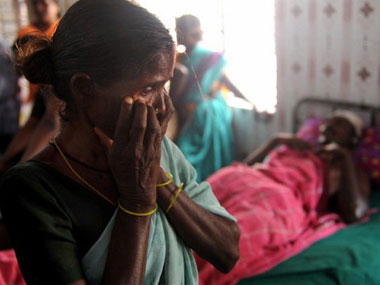If the popular media make us feel that grotesque murders usually have history-sheeters or sociopaths behind them, they are wrong. At least in Tamil Nadu. Last year, around 80 percent of the murders recorded in the state were committed by people who are otherwise not criminals; and the murders appeared to have occurred at the heat of the moment. Bulk of it happened because of quarrels within or between families and between people, personal enmity and passion. Read otherwise, it is not organised crime and money that kill people in the state, but socio-economic conditions that could have been modified. Strikingly, murder for gain that hog the media-headlines are few and far between. So, what does this tell us? That tough policing and draconian laws are not necessarily the sole solutions to crime, but better social and living conditions and appropriate access to justice. [caption id=“attachment_291752” align=“alignleft” width=“380” caption=“Studies all over the world have shown that poor socio-economic conditions such as poverty, inadequate-housing and overcrowding, unequal living conditions and sheer desperation of social exclusion abet crime. AFP”]  [/caption] Out of the 1715 murders in 2011, the highest in the last ten years, “family quarrel” accounted for the highest number - 440. Interestingly, this has been the trend in the state for years. Mostly, the numbers hovered around the 400s. The next is, personal enmity. It accounted for 421 precious lives, followed by crime of passion, which the state police categorises as “love affairs and sexual causes”, that claimed 347 persons. “Wordy duels,” which possibly means petty quarrels or quarrelsome arguments had an equally high toll - 325 people. These are the murder-highlights of the Tamil Nadu police policy note for 2012-13. For the common population, it is indeed quite reassuring to note that they are fairly safe from murder for gain, possibly because of the tough handling of habitual criminals and better policing. However, what is striking is that nothing concrete has been done to address the socio-economic causes for the bulk of the avoidable murders. At least in some settings, there is a free-for-all and poor access to justice that prompt people to take law into their hands. Interestingly, the number of murders had declined from 1647 in 2002 to 1274 in 2006, when the state was ruled by AIADMK. By the time DMK was in power in 2007, it rose to 1521 and kept climbing up till the end of its rule. If the state police needs to invest wisely, they need to invest where it matters most. Perhaps it is time that they looked at issues more holistically, laying more emphasis to social situations that could lead to fights and murders. Studies all over the world have shown that poor socio-economic conditions such as poverty, inadequate-housing and overcrowding, unequal living conditions and sheer desperation of social exclusion abet crime. Isn’t time for a more comprehensive and multi-sectoral approach to crime where other government departments chip in to prevent situations that breed enmity and crime? The biggest cause of avoidable deaths in Tamil Nadu, however, is road accidents. More than 15,000 people lost their lives on the roads in 2011. About 0.44% of the vehicles in the state were involved in fatal accidents. In other words, one out of every 227 vehicles on Tamil Nadu roads is involved in a fatal accident. If you are on the road, it is quite scary, isn’t it? The number of accident deaths has been rising progressively over the years. Till 2005, it stayed below 10,000; but since then, it just kept rising steeply. However what is redeeming is that the percentage of vehicles that get involved in fatal accidents is certainly coming down. In 2002, it was twice of what it is today. In fact, it has even improved from last year. Even the percentage of deaths attributed to the number of vehicles is improving. The combination of factors in the traffic-statistics indicate sheer rise in number of vehicles in the state and the possibility of lawlessness on the roads. However, the reduction in the relative possibility of accidents and deaths hovering around the vehicles perhaps indicate better infrastructure, traffic management and trauma care services. What does this all tell us? Simple. Law and order maintenance and traffic control need to be intelligent, perceptive and sensitive. Better living conditions and social equality is an ideal that one should work towards. Being smart is better than being tough.
Out of the 1715 murders in 2011, the highest in the last ten years, “family quarrel” accounted for the highest number - 440. The next is, personal enmity, followed by crime of passion.
Advertisement
End of Article


)

)
)
)
)
)
)
)
)



